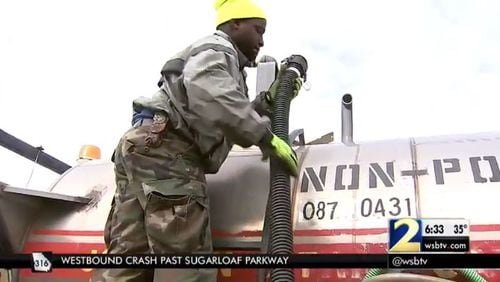Road crews are gearing up for winter weather that could blast some areas of metro Atlanta with more than 3 inches of snow Friday and Saturday.
RELATED: Storm watch ahead of biggest threat in two years
The Georgia Department of Transportation plans to use 10 brine trucks to pre-treat roads as early as 9 p.m. Thursday, spokeswoman Natalie Dale said.
“So that is the biggest thing we have rolling right now,” Dale said.
Brine is a salt and water solution that keeps ice from forming on roads.
GDOT also has 55 plows, salt trucks and other snow removal equipment; 24,000 tons of gravel; and 20,000 tons of salt.
At least 280 employees will move from South Georgia counties into North Georgia on Friday to assist with prep work.
"I can tell you right now we are still actively preparing, gearing up,” Dale said.
HOW YOU CAN PREPARE:
The Georgia Red Cross recommends residents in the path of the storm stay informed of weather updates and plan ahead to stay indoors and avoid travel.
Have at least a three-day supply of food and water for each person in the household.
“Everyone is urged to take precautions to reduce the risk of home fires and the potentially damaging effects of frigid temperatures on people, pets, water pipes and more,” Red Cross spokeswoman Sherry Nicholson said.
- Build an emergency kit well in advance with critical documents, medications, food, water, blankets and warm clothing.
- Winterize your vehicle and keep the gas tank full to keep the fuel line from freezing.
- If you're driving, accelerate and decelerate slowly and avoid stopping when possible to keep from sliding.
- Listen to a NOAA Weather Radio or local news outlets for updates.
- Bring pets inside and move livestock to sheltered areas with access to food and water.
- Running water even at a trickle helps keep pipes from freezing.
- All fuel-burning equipment should be vented to the outside and kept clear.
About the Author






